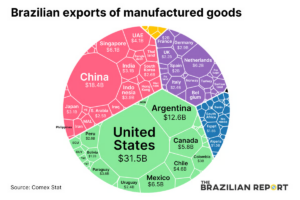Briefly: Venezuela’s oil minister, Tareck El Aissami, resigned suddenly on Monday amid accusations of corruption at the state oil firm PDVSA. Later that evening, President Nicolás Maduro went on TV to announce a corruption crackdown.
But experts query Maduro’s motives. El Aissami is considered the architect of the sanctions evasion scheme that has helped keep Venezuela’s oil sector afloat, while lining the pockets of top officials. So the term “firing El Aissami for corruption” is a little like “firing LeBron James for basketball”.
Instead, El Aissami’s ouster was probably an olive branch to the US. Washington might be more inclined to lift sanctions on PDVSA now that El Aissami, a designated drug trafficker with a $10M bounty on his head, has stepped down.
Stay on top of your world from inside your inbox.
Subscribe for free today and receive way much more insights.
Trusted by 134,000+ subscribers
No spam. No noise. Unsubscribe any time.
Intrigue’s take: In his speech on Monday, Maduro urged Venezuelans to “go on the offensive against the corrupt, the bandits, the delinquents, the criminals.”
They might start at the top. In his decade in power, 7 million Venezuelans have fled the country, the GDP per capita has dropped by 87%, and oil output has collapsed from 3.5 million barrels per day in 1999 to 700,000 last year.
Meanwhile, the US has sanctioned Maduro’s son, stepsons and other confidants for their alleged involvement in money laundering, bribery and beyond.
Also worth noting:
- Venezuela has the world’s largest oil reserves, yet its people live on $1.90 per day.
- Venezuela doesn’t publish inflation data, but prices likely surged 300% in 2022.








